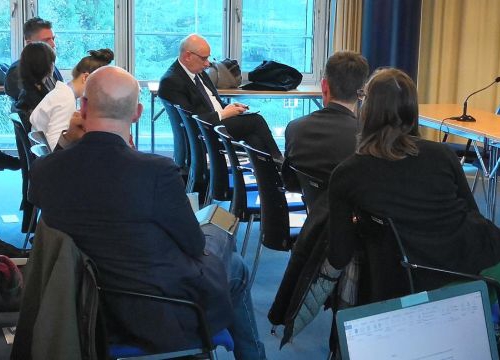Implementing the UN Guiding Principles on Business and Human Rights in Conflict and Post-Conflict Settings


Geneva Academy
3 December 2018
We co-organized on 29 November 2018 with the BCHR-network a consultation for the United Nations (UN) Working Group on Business and Human Rights (UN Working Group) to inform their new project on business in conflict and post-conflict settings.
This UN Working Group’s new project will look at the implementation of the UN Guiding Principles on Business and Human Rights (UNGPs) in conflict and post-conflict settings by identifying and clarifying policy options and best practices for states and businesses along the conflict cycle. Following research and consultations throughout 2019, the results and recommendations will be presented at the Human Rights Council in June 2020.
Anita Ramasastry, a member of the UN Working Group, presented this project and discussed with some 45 international experts the research components and potential contributions that may help inform the project.

Sharing the Geneva Academy’s Expertise
The Geneva Academy will provide inputs and guidance to the UN Working Group on the implementation of the UNGPs in conflict and post-conflict settings.
‘This new project is an opportunity for us to share our work and expertise in the classification of armed conflicts and in the human rights obligations of non-state actors and therefore contribute to addressing the issue of business in conflict and post-conflict settings’ stresses Felix Kirchmeier, Coordinator of the Geneva Human Rights Platform.
‘Our expertise in transitional justice could also help the UN Working Group to look at the role of business throughout the entire conflict cycle’ he adds.
Building on Previous Collaboration
The Geneva Academy already collaborates with the UN Working Group on the gender dimension of the UNGPs.
‘It’s important for us to accompany the UN Working Group when it addresses issues that are in our areas of expertise, like we do now on gender and will do with this new project on business in conflict and post-conflict settings’ explains Felix Kirchmeier.









